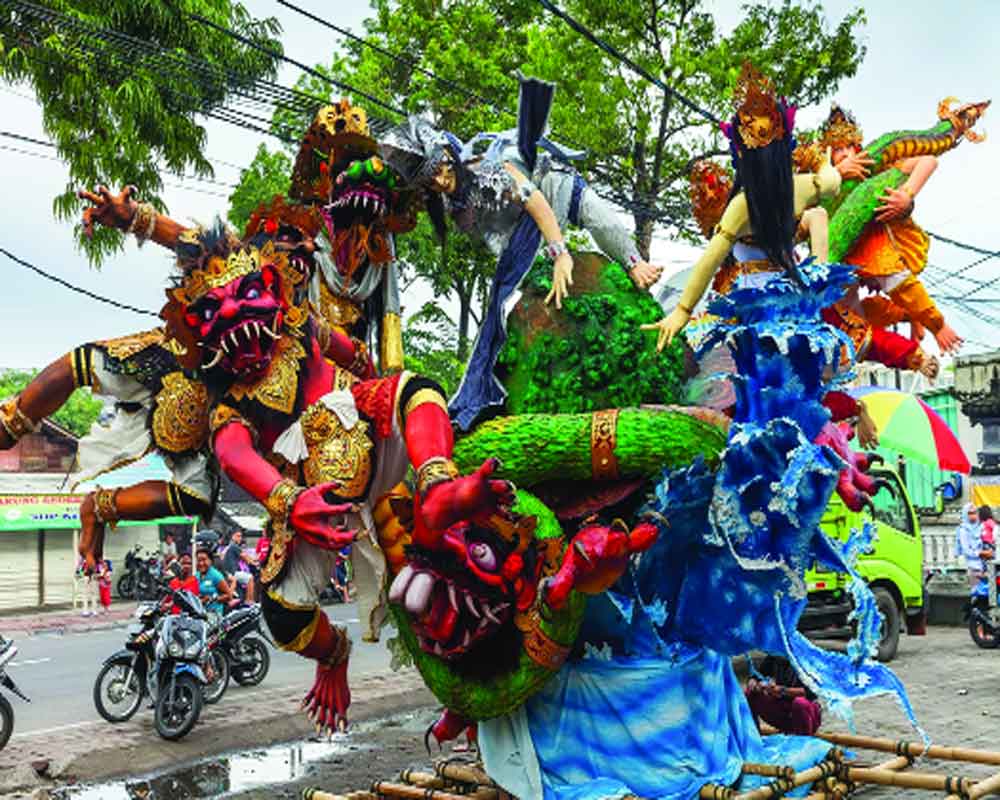From the tranquil Nyepi Day in Bali to the vibrant street celebrations in Japan, rituals surrounding life’s milestones offer glimpses into cultures
We had lunch in the resort restaurant during a vacation to Thailand a few months back. There was a slight drizzle as we walked along a narrow walkway hemmed in by walls and tastefully planted beds of flowers, vines and shrubs.
I remember a late evening in our beach resort in Bali a few years back. The day after our arrival was Nyepi Day, a public holiday. It is a day of silence, fasting and meditation. No lights are lit in the evening. It is believed that spirits roam in the evening on this day. Any loud sound or bright light may attract them to come down to explore and some of them may cause harm.
We had walked to the resort restaurant along walkways at the back, which were lit up with muted lamps placed along the path to guide the guests. Even the lighting in the restaurant was subdued. We were also caught up in the spirit of the local folklore and walked silently along the dimly lit narrow path, surrounded by flowers, vines and shrubs, apprehensive of catching the fancy of an evil spirit.
A few decades back, I was in Japan for a study tour. There was a public holiday, which was celebrated as the day of the ancestors. Groups of people were out dancing on the streets, moving from one house to the other. Each household had set up a table in the front, loaded with beer and other alcohol and savouries to be partaken by the dancing people. I also joined the celebrations.
We have a fortnight-long annual ritual, called Pitru Paksha, to honour our ancestors. Prayers are offered, followed by meals specially prepared. What surprises me, though, is the fact that these 15 days, in honour of our ancestors are considered inauspicious for any new purchases, or any other auspicious work, even though we are because they were.
A very close Parsi friend passed away a few years back. The family invited us for a celebration of her life a few days later. There was laughter all around as we all recounted the happy times that we had spent with the lady over drinks and food. The gracious hostess, her daughter, had prepared a special Parsi-style chicken dish, which had been both a speciality and a favourite of the departed soul.
We also have the thirteenth-day ceremony in our Hindu religion which is formally the close of the mourning period. Guests are intimated to join prayers and then partake of our special food prepared for the occasion. Though sometimes teary-eyed, everyone remembers the time spent with the person who has joined the supreme being.
Why mourn death, which is only the passing away to another life? When my time comes, I hope my near and dear ones remember me, not for my beliefs, but for the happiness that I gave them.
A life led to spreading happiness all around is to be celebrated. Thomas Campbell rightly said, “To live in hearts we leave behind is not to die!”
(The author is an electrical engineer with the Indian Railways and conducts classes in creative writing; views are personal)


























